IstanbulTechnical University
ITUpSat-1 wurde am 23.09.2009 um 06:21 UTC erfolgreich mit einer PSLV-C14 Rakete vom Satish Dhawan Space Centre (SDSC) SHAR in Sriharikota gestartet.
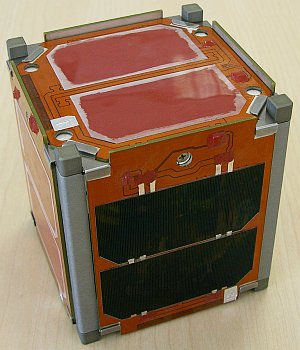
NASA-Catalog: 35935
Bake
437.325 MHz CW 0.1W
Downlink
437.325 MHz 1.0W GFSK 19200 bit/s
gleiches Modem wie AggieSat-2
Call
TA1KS
Status
CW Bake aktiv
Orbital Parameter
NORAD 35935 COSPAR designator 2009-051-E Inclination 98.398 RA of A. Node 25.322 Eccentricity 0.0009279 Argument of Perigee 71.612 Revs per day 14.54186945 Period 1h 39m 01s (99.2 min) Semi-major axis 7 090 km Perigee x Apogee 705 x 719 km BStar (drag term) 0.000175470 1/ER Mean anomaly 288.608
Mission
ITUpSAT1 is the first university satellite of Turkey. It is a pico-satellite which is designed and manufactured in CubeSat project as a collaboration of Stanford and California Polytechnic Universities of USA. The pico sized satellite, which will be launched to space in January of 2009, will have an orbit at approximately 700 km. The primary goal of I.TÜpSAT1 is to raise experienced staff on satellite systems in our country, and also to serve as a practical ground for the theoretically equipped graduate and undergraduate students of I.TÜ Astronautics Department.
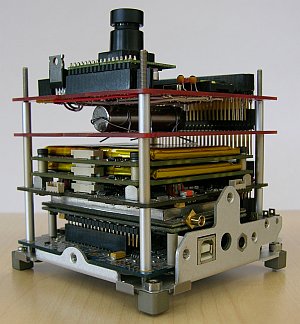
Empfangsberichte
ta1ks itupsat hr ta1ks itupsat hr ta1ks itupsat hr
27.09.2009, 12:51 UTC
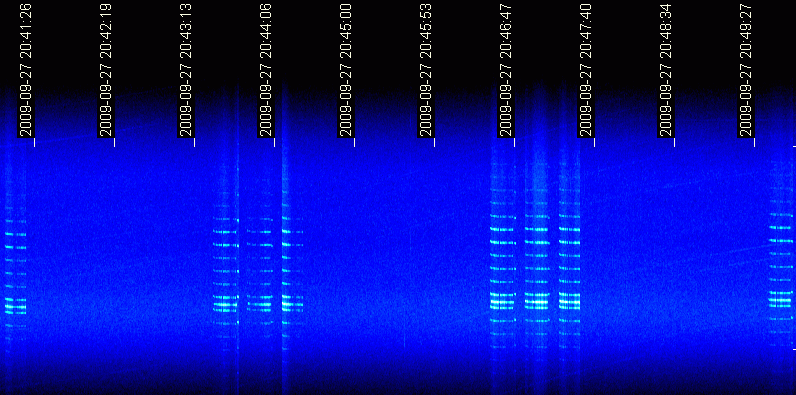
UHF Spektrum
ITUpSat Spin
Am 19.12.2009 habe ich bei einem 22° Elevation Durchgang versucht, die Spinrate zu bestimmen. Während des Durchgangs konnte ich 3 Baken mit sehr guten Signalen aufnehmen.

Spektrum des NF Audiosignals
Es gibt 3 Intervalle (Perioden) – jedes ca. 23 Sekunden lang:
* eine Periode mit einem sehr starken, deutlich hörbaren Rauscheinbruch
* eine zweite mit einem etwas schwächerem Rauscheinbruch
* und eine dritte, nicht hörbar – aber im Spektrum zu erkennen
Daraus resultiert eine Rotation um eine Achse, mit einem weiteren Taumeln. Die Spinrate beträgt demnach etwa 2.6 rpm

Colin, VK5HI: I looked at the audio file and looked at the noise pulses. I think we can say the spin period is somewhere between 2.69 and 2.76 RPM. The reason for the variance is that the satellite is “tumbling” hence has some level of nutation. My experience with AO-51 is that the nutation can affect determinations over short periods of time, so you need to take as many spins as possible into your calculations. I would suggest that the sat is spinning about one axis, but with a high level of nutation.
Prof. Dr. A. Rüstem Aslan, Project Manager ITUpSat:Thank you for the spinning rate info. We expected ITUpSAT1 be spinning about one axis (axis towards the earth direction) and thumble with +-30 degrees towards earth. We are using a magnet for passive stabilization.
QSL und Participation Award
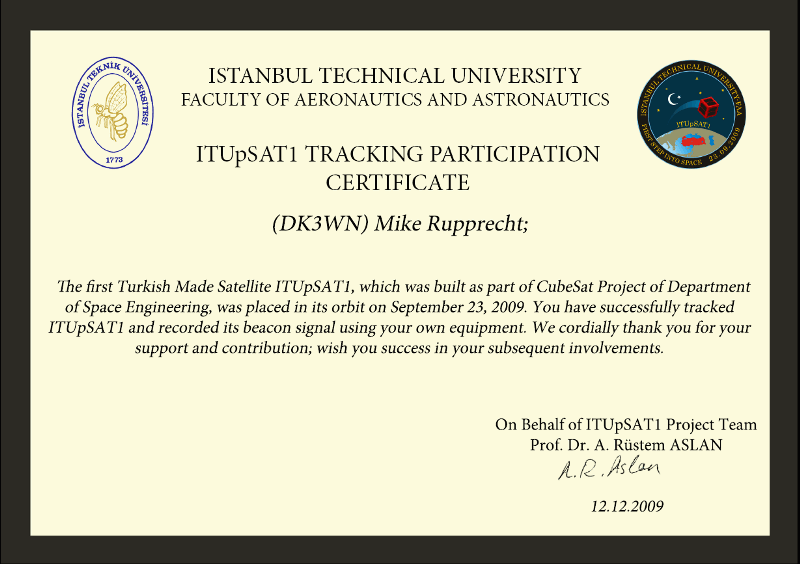
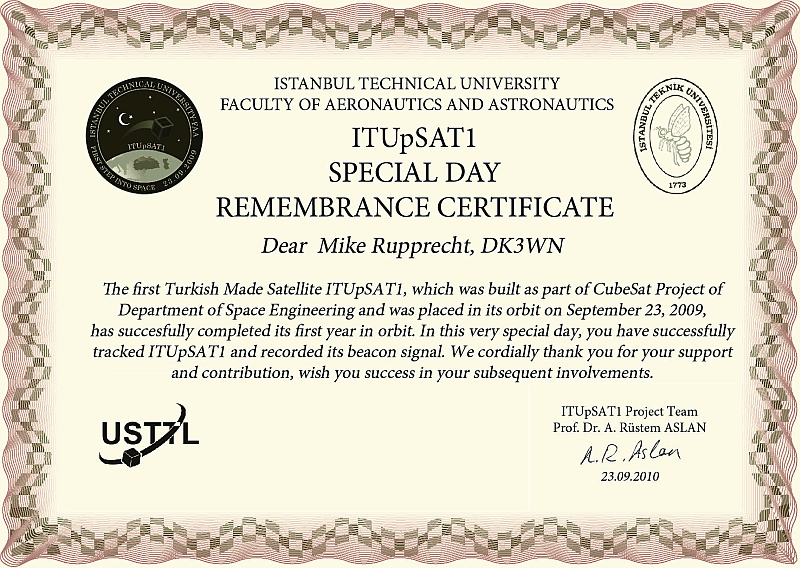
Empfangsberichte direkt an das ITUpSat-Team: aslanr@itu.edu.tr
Links und weitere Informationen
http://usl.itu.edu.tr/index.html
ITUpSat Club bei facebook
http://directory.eoportal.org/presentations/11670/10001879.html
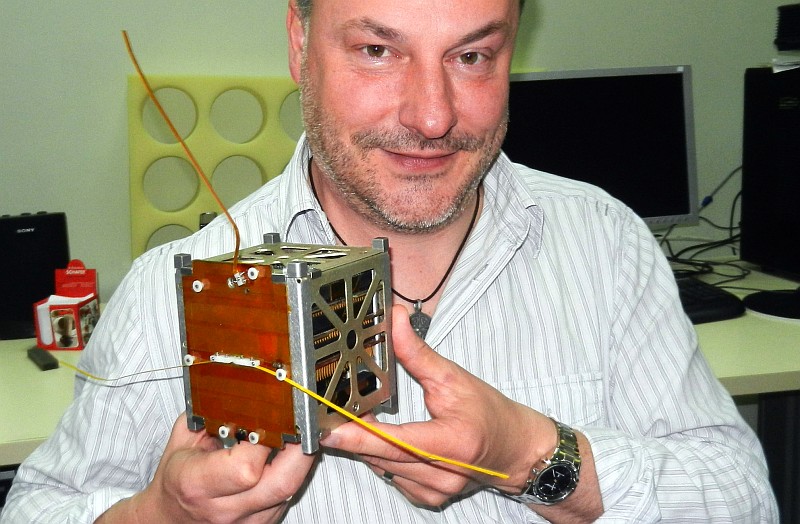

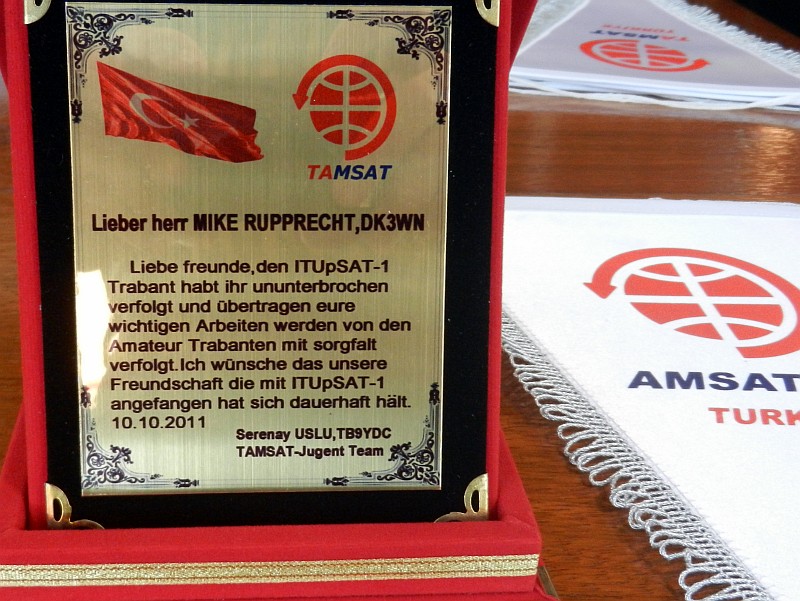
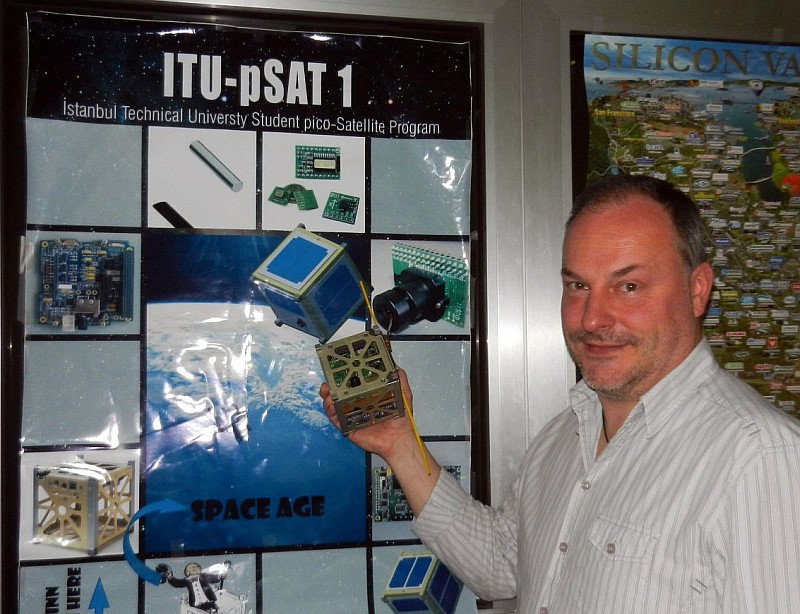
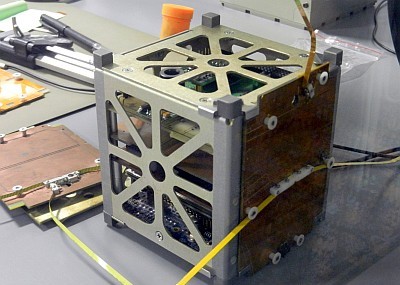
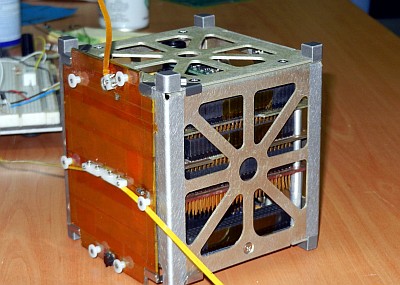
 CW Bake von ITUpSat
CW Bake von ITUpSat